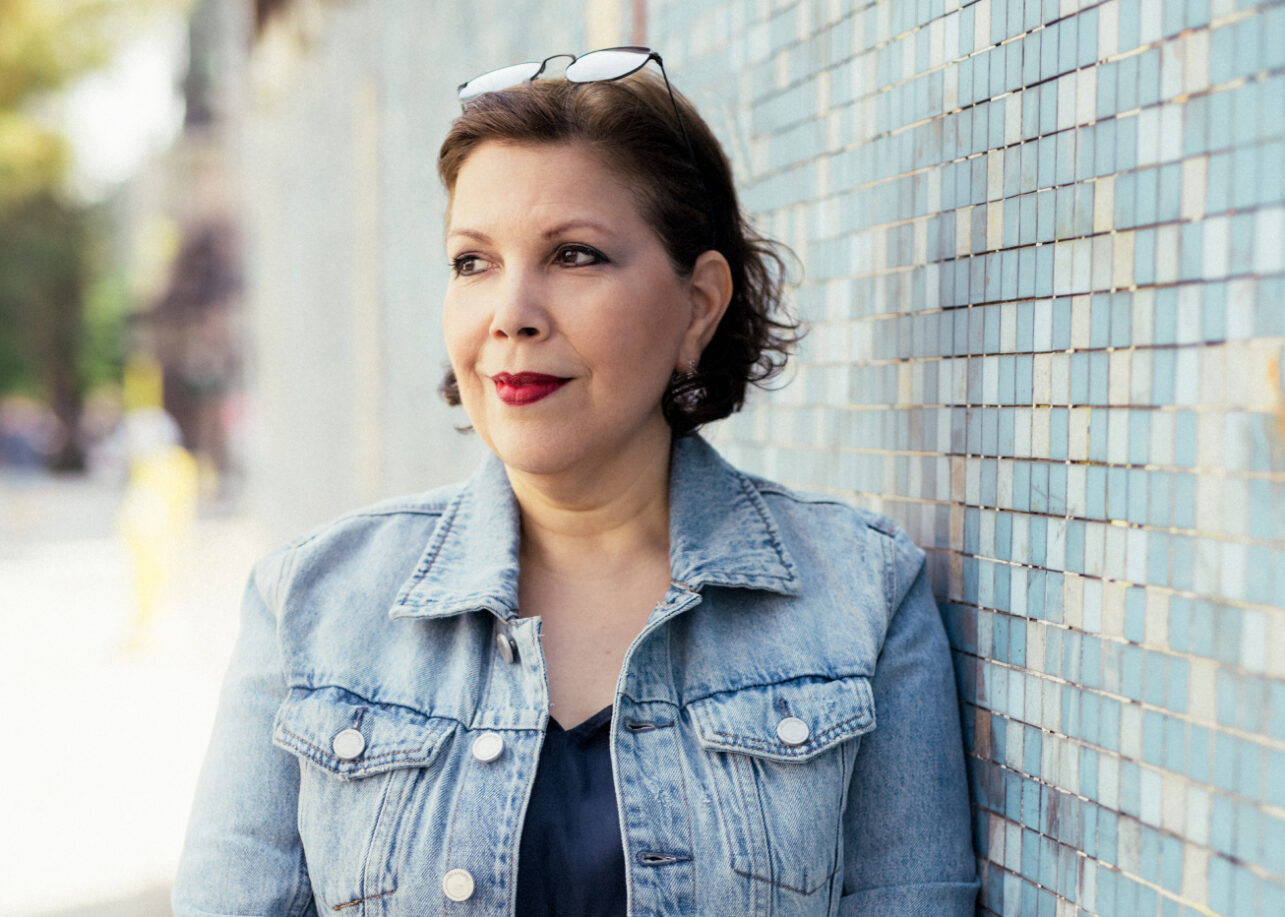FIXING HOLLYWOOD’S INCLUSIVITY PROBLEM

In June 2019, screenwriter, director, and producer Evette Vargas, Fashion Design ’90, announced she would be teaching two labs for writers who wanted to break into the film industry. These workshops sold out in a few hours. “I was shocked,” she says. After over a decade in Hollywood, with production credits for Amazon, MTV, and Bravo, the Puerto Rican Bronx native was more established than she realized. “Three weeks into the labs, I started to hear from the industry—producers, development executives, and agents—wanting me to refer alumni.”
After Vargas learned that startlingly few people of color worked in her field, advocacy for diversity both in front of and behind the camera became her raison d’être. “I became very active, speaking on panels, giving lectures, and mentoring writers,” she says. “My intention was, and still is, to put writers of color in front of script buyers, employers, and creators.”
When friends and colleagues encouraged her to create those two spring 2019 labs—“Pitching the Television Series” and “Writing the Television Pilot”—Vargas opened them to everyone but focused recruitment on underrepresented groups, including women, BIPOC and LGBTQIA+ students, persons with disabilities, and veterans.
For entertainment executives, the value of Vargas’ work, now crystallized into a full-fledged passion project, fills a void in the industry. “As someone who’s been in that particular fight—diversity, equity, and inclusion—I realized how important what I was doing really was and that, somehow, I had to find a way to keep it going. And that was the birth of The Writers Room 5050,” she says. The “5050” represents the equity and equality she strives for.
Four years in, her program offers 12 classes in writing, directing, producing, and the TV and film business, and has five educators on staff. Program alumni are working in a variety of areas: on TV series including Station Eleven, Never Have I Ever, and The Investigators, and for companies like Blue Monday Productions and the Gotham Group, which produced The Maze Runner series and many others. Other alumni have sold work to channels like AMC, and development executives and producers regularly tap alumni for projects, or as writers-for-hire for film and television.
Vargas believes the students are successful because of the hands-on experience they gain in the labs. “We workshop everything in a writers’ room format. It’s very interactive, and everyone’s held to a professional standard,” she says. At the end of “Writing the Television Pilot,” 20 pages of each student’s script get a table-read with professional actors. In the last session of “Pitching the Television Series,” writers pitch an idea to a development executive or producer who might take on the project.
Vargas recalls how the experience helped transform a quiet, shy recent college graduate. “When we got to the table-read, her script, rooted in magical realism and based on her life, blew everyone away. She implemented everything she had learned. Everyone was floored and overjoyed. For her, with the confidence she developed, it was like two different people from start to finish.”
Vargas adds, “We’ve been able to really change people’s lives. I believe that we’re creating a ripple effect in the entertainment industry.” —Diana McClure